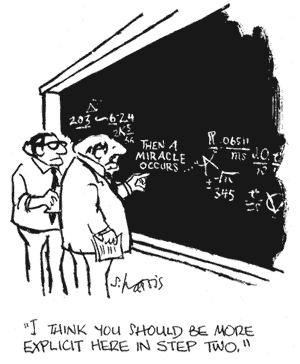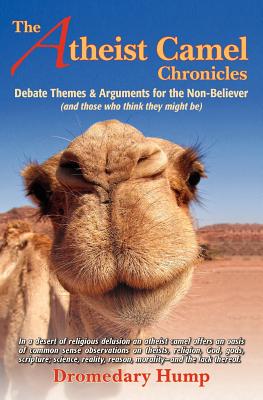
Recently an ex-Catholic cum agnostic made the following statement:
“There is no need for fighting between religion and science. There is plenty of room within the various stories and fables of the religions for science to fit in”.
“There is no need for fighting between religion and science. There is plenty of room within the various stories and fables of the religions for science to fit in”.
I couldn’t Disagree more.
Trying to reconcile miraculous myths by proffering natural phenomenon or scientific explanations is an exercise in the absurd. Things like the Nile turning red (“Oh…it was an earthquake that released clay….yada, yada, yada.”); or the frog plague (“Oh… a water spout could have caused that.”); or Moses staff turning into a snake and eating the other staff/snakes of the Egyptian priests (“Oh…well… uh… that could have been an optical illusion caused by….yada, yada, yada.”). Please. One might as well justify how Superman “could possibly” fly given the right wind currents and a properly tailored cape.
But then things get even stickier…
1) What is the scientific basis for, or where does science fit into, the Resurrection of Jesus fable, or his raising of Lazarus?
2) What physical law observed by science permits the fabled feeding of the "multitude" by miraculously multiplying a finite number of fish and loaves?
3) What is the scientific explanation for water being instantly converted into fermented grape juice?
4) How does our scientific knowledge about geology and the universe, support the mythical places known as Hell and Heaven?
Answers: 1-3 there is none; 4 it doesn’t.
Why is this important? Because these myths are the basis for the faith of the theistically impaired. It is their justification for Jesus' divinity, and establishes the mythical realms of eternal reward and punishment in exchange for acceptance or denial of their preferred myth. It is those myths that have given rise to 1800 years of mind enslavement, horror and injustice.
There is no room in genuine science, nor justification, to cut and fit natural law / scientific reality so it is accommodated within religious fantasy in order to give that fantasy a semblance of plausibility. That’s pseudo-science. Real science trumps religious fantasy, dispels it, supplants it, and renders it unsupportable fiction.
Science’s tenets and principles have increased man’s knowledge, brought him out of the darkness of ignorance and superstition, have reduced the size of the “God of the Gaps”, and eventually should bring about its virtual demise. And when it does, religious exclusionism, intolerance, homophobia, misogyny, ignorance, and attempts at theocratic supremacy will go with it.
In the struggle of science vs. myth, reason vs. blind belief, there can be no accommodation, no middle ground. Pick your side.
Science’s tenets and principles have increased man’s knowledge, brought him out of the darkness of ignorance and superstition, have reduced the size of the “God of the Gaps”, and eventually should bring about its virtual demise. And when it does, religious exclusionism, intolerance, homophobia, misogyny, ignorance, and attempts at theocratic supremacy will go with it.
In the struggle of science vs. myth, reason vs. blind belief, there can be no accommodation, no middle ground. Pick your side.

























2 comments:
I took a Mythology class last fall, and the basic theme repeated over and over is "the myths of a culture are important as being a look into its psyche, rather than saying they're not true, since that is obvious". People who try and say science/math/etc can live together with religious literalism are trying to have things both ways. They see the power behind science, but they don't want to let go of their mythology either. That the Christian mythology is the same thing as the mythological elements of other religions is a point usually lost on them. If someone wants to believe in an Einstein like God of universal complexity, that's fine, but you can't bring in superstitious mythology with it. It will never gel.
There are people, many of them in fact, that embrace evolution, whilst saying that God is behind it. Why do positive and negative charges attract? Why do neutrinos need to come in three flavors? Why is mass directly tied to speed? If you probe deep enough, any base of knowledge hits that edge where someone can claim that there is where God comes into play. It's sort of an unfalsifiable argument, since no one can come up with an answer to every problem to come up. That doesn't make it a virtue though.
excellent post!
thanks Leo, well said, as always.
Post a Comment